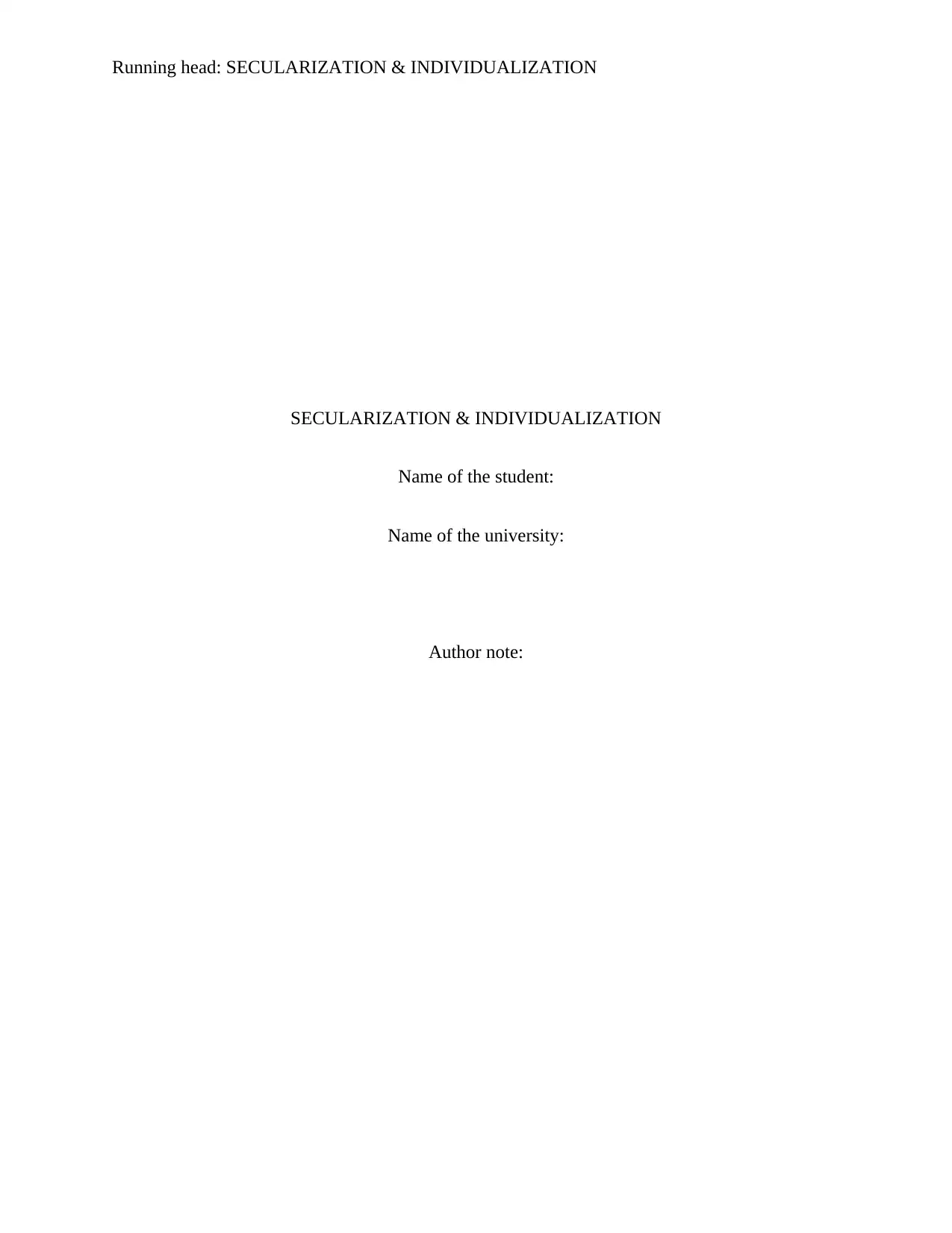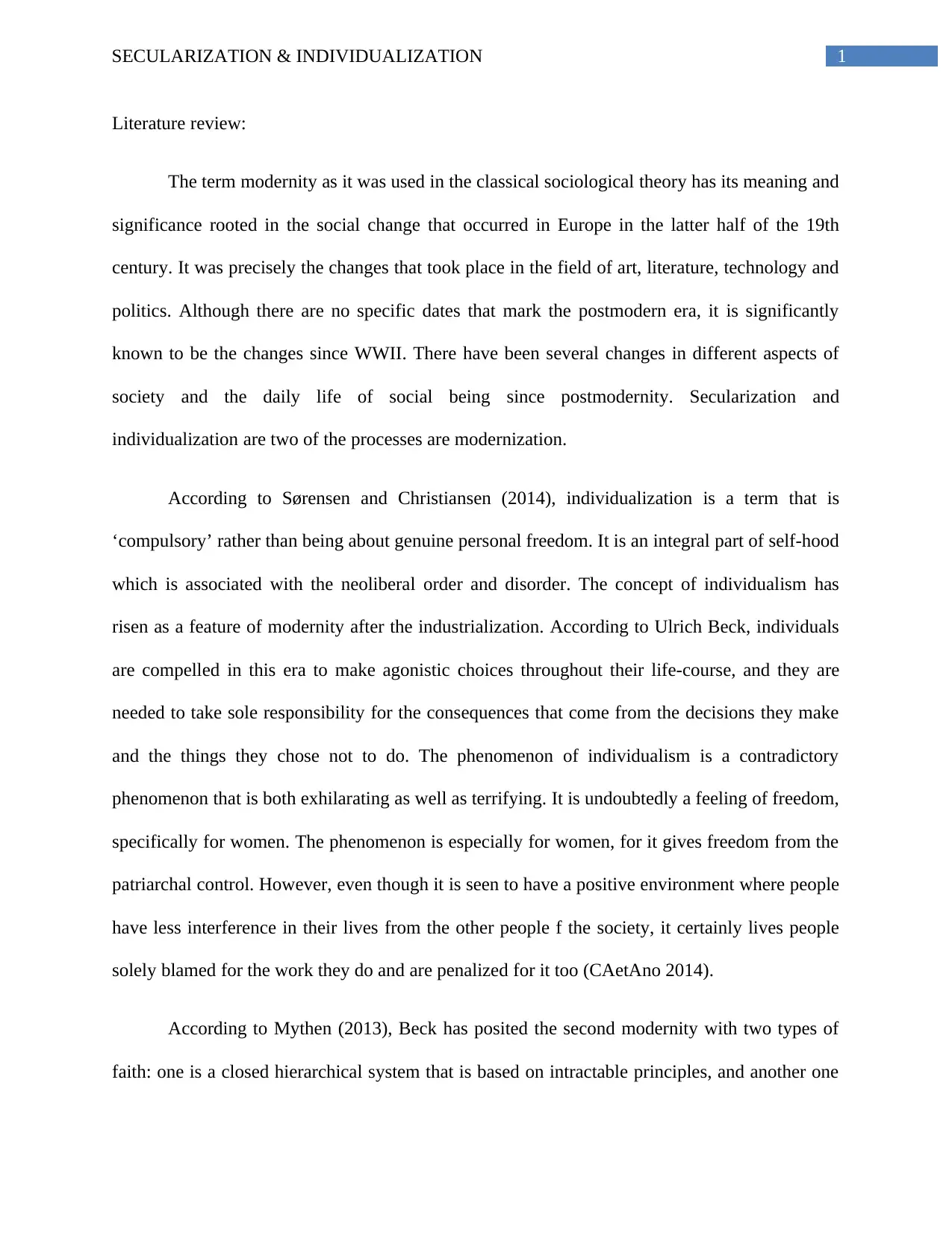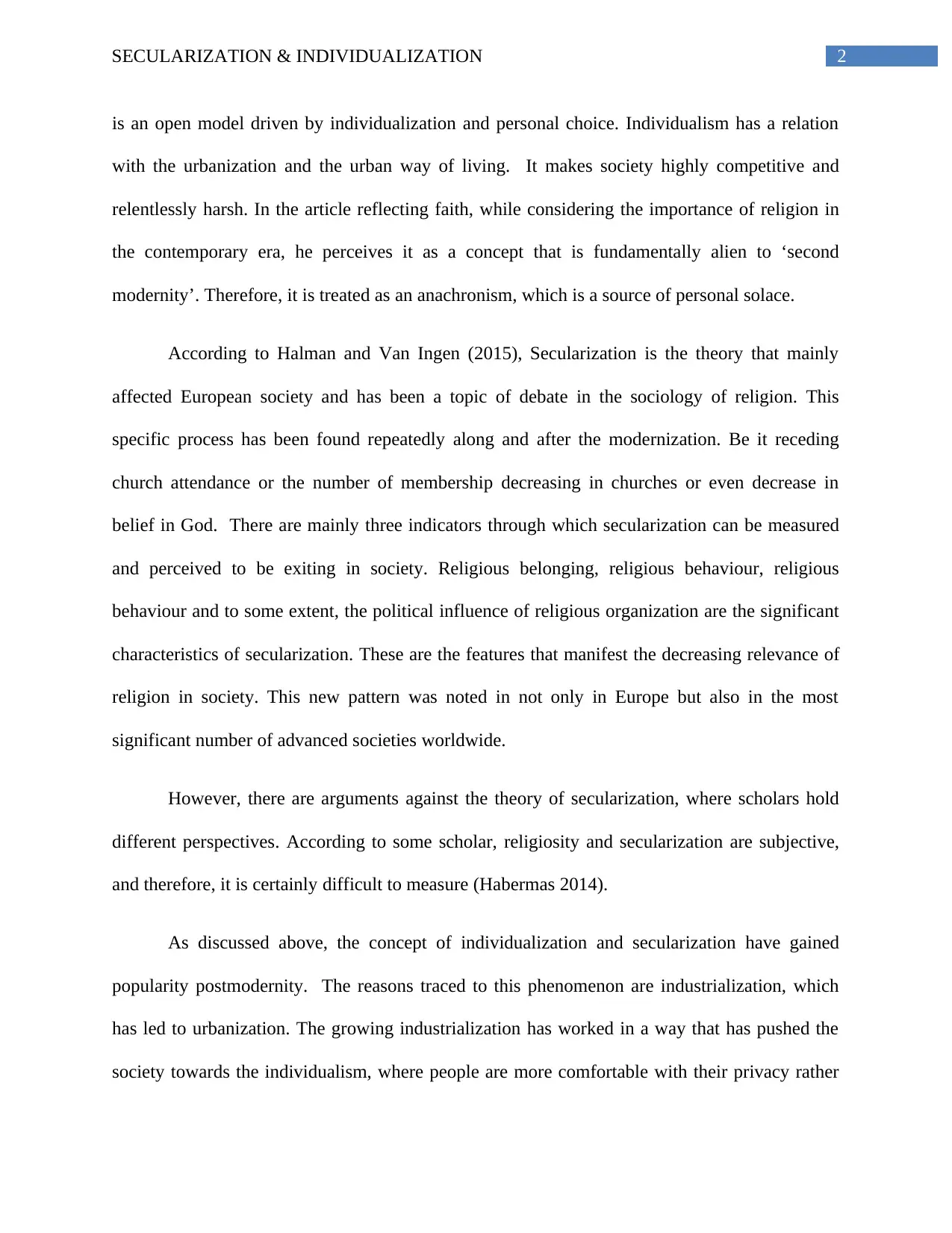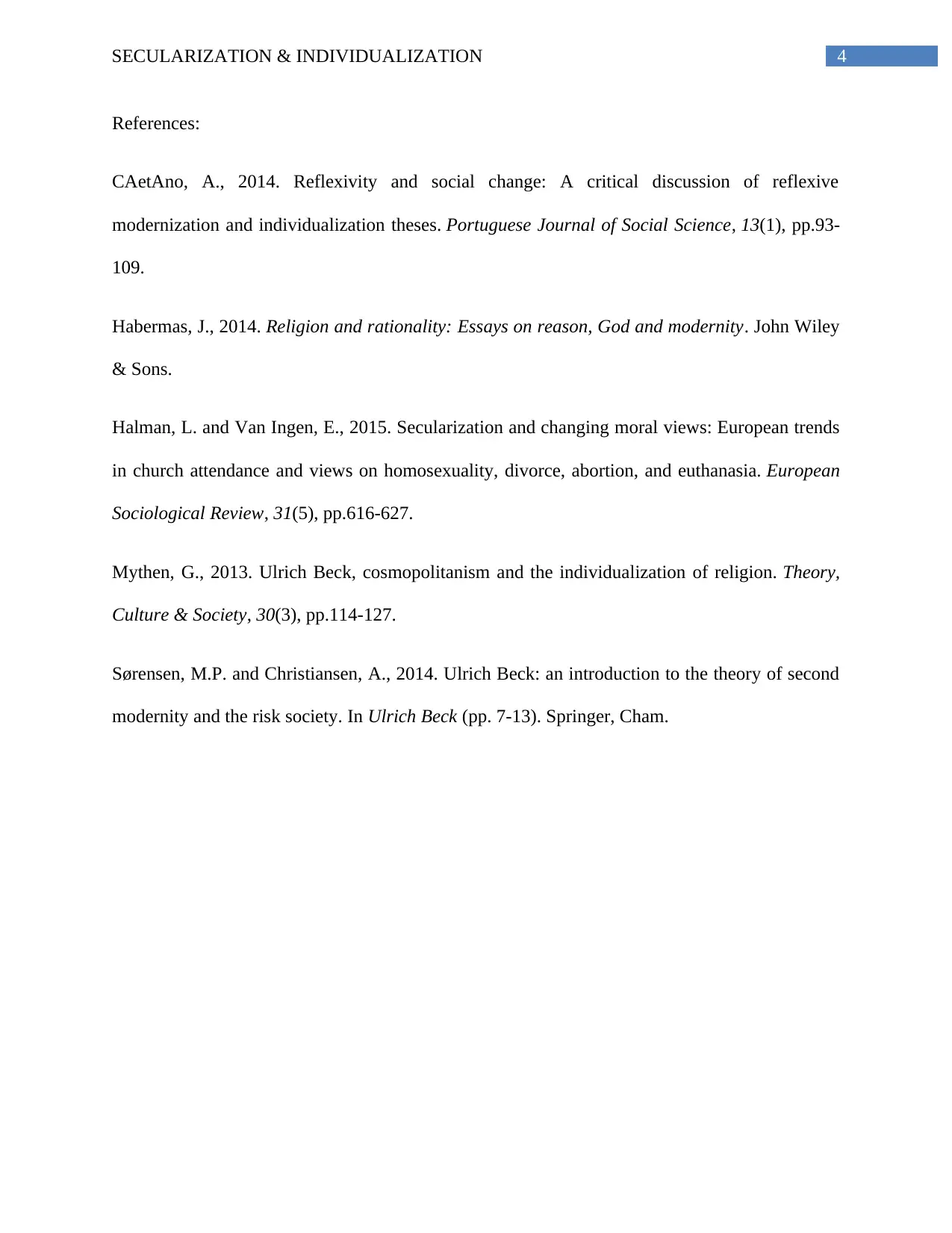Literature Review on Secularization and Individualization Processes
VerifiedAdded on 2022/11/25
|5
|907
|229
Literature Review
AI Summary
This literature review examines the concepts of secularization and individualization within the framework of modernity, as explored in the SOC10012 course. It begins by defining modernity and the shift to postmodernity, highlighting the impact of social changes. The review focuses on individualization, as defined by Sørensen and Christiansen, and its relationship to neoliberalism and the rise of individualism after industrialization. It references Ulrich Beck's perspective on individual responsibility and the contradictory nature of individualism, especially for women. The review also addresses secularization, discussing its impact on European society and the measurement of religious belonging, behavior, and the political influence of religious organizations. The review also considers the arguments for and against secularization, and the roles of industrialization and urbanization in these processes, including references to key scholars like Habermas, Halman, and Mythen. This literature review offers a comprehensive overview of the subject matter.
1 out of 5









![[object Object]](/_next/static/media/star-bottom.7253800d.svg)